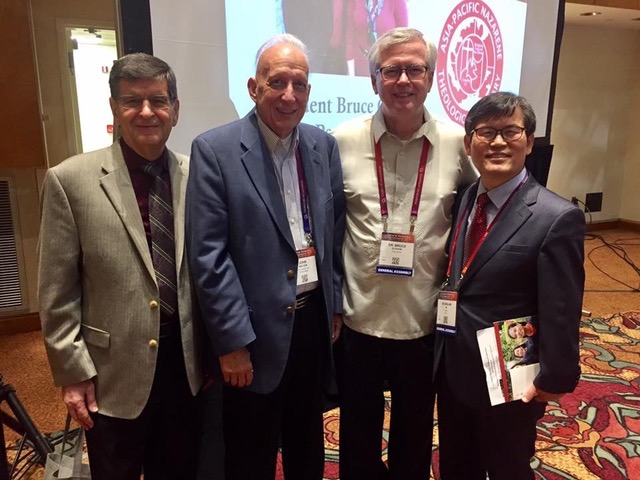
The purpose of Christian leadership is to, by grace, participate with God in the reconciling and transforming of humankind, so that holy people may be equipped for a Christ-like ministry of service to others as they fulfill their vocational responsibility. A holiness lifestyle focuses on the progressive transformation of the Christian toward the character, values, motives, attitudes, and understanding of God Himself (Ephesians 4:13).
The primary method of teaching and leading for transformation, I believe, is modeling or “exampling.” Our challenge is to intentionally nurture those whom we lead for mission and ministry accomplishment in the midst of their family, their work, and their many other commitments.
How do we determine if we have succeeded in our teaching and leadership assignment to prepare others for their ministry and mission? What definition of success did Jesus use?
In general terms, we begin to answer the questions when we understand ourselves as servants—motivating, equipping, and enabling others to serve in Jesus’ name. We want those for whom we are responsible to see in us a servant spirit committed to motivating, equipping, and enabling them to serve others in Jesus’ name. The ministry of equipping others to serve others in the name of Jesus (Ephesians 4:12b-13) is paramount for the leader.
Equipping those for whom we are responsible (Ephesians 4:12) means that we prepare others to reproduce themselves in the work to which they are called (see also II Timothy 2:2). We equip them in such a way that the students will be like their teachers, pastors, professors, or mentors. The crucial concern is for every believer to participate in the ministry of reconciliation as God has gifted, called, and “stationed” her or him.
As a leader, how do you teach this lifestyle? You teach a servant lifestyle through the principle of imitation. Luke 6:40 challenges us: “…When a student is fully trained he will become like his teacher.” Modeling the message suggests that teachers and leaders create a learning environment that exhibits in practice what is said in word. “Exampling” implies an emotional closeness between the leader and the led within the body of Christ. Reflect on Paul’s admonitions:
- “Follow me as I follow Christ” I Corinthians. 11:1).
- “You ought to follow my example” (II Thessalonians 3:7).
- “Put into practice what you have learned, received or heard from me or seen in me…” (Philippians 4:9).
- “We did this in order to make ourselves a model for you to follow” (II Thessalonians 3:9).
He gave gifts…to some…to guide and teach his people…so that Christians might be properly equipped for their service….That the body might be built up…until we arrive at real maturity…. (Therefore) we are meant to speak the truth in love, and to grow up in every way unto Christ, the head.
(Ephesians 4:11-16)
The Ephesians passage helps us in answering our primary concern: How can we teach and lead so that the Christian faith is experienced not as “intellectual belief” to be known but as a life to be lived and shared? We can teach others to know, but how do we teach them to live a Christian lifestyle and to lead Christianly? The answers to these and other related questions come when we more clearly understand our task to be “the equipping of believers”; the goal of our work to be “service or ministry through believers”; and the method to be “modeling or an emotional closeness between the leader and the led within the body of Christ.”
This blogpost is a continuation from the December 2015 post. I welcome your comments.
www.boardserve.org
1.24.2016





